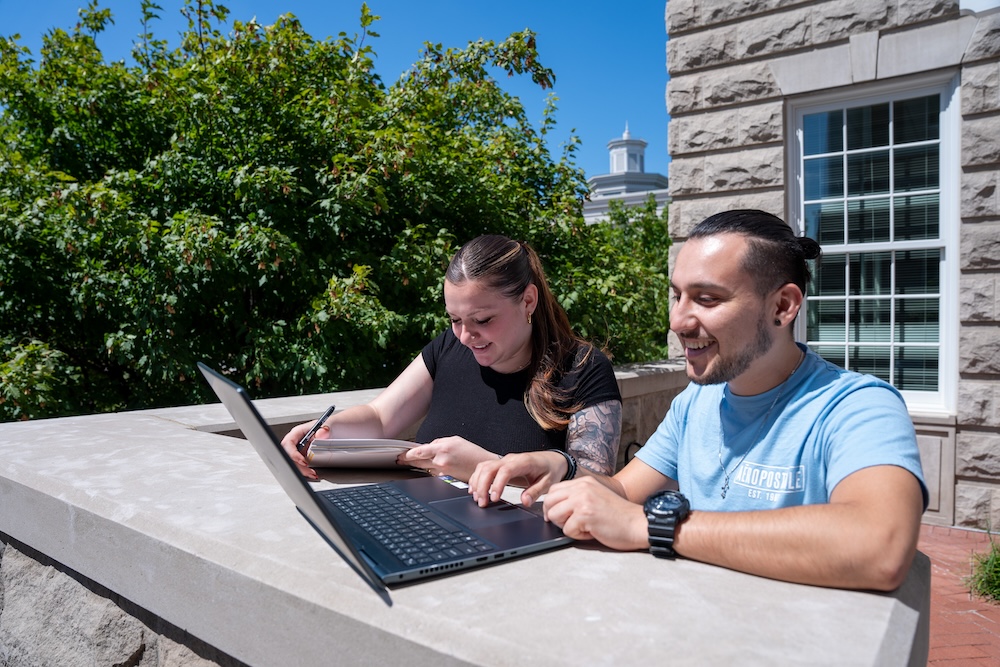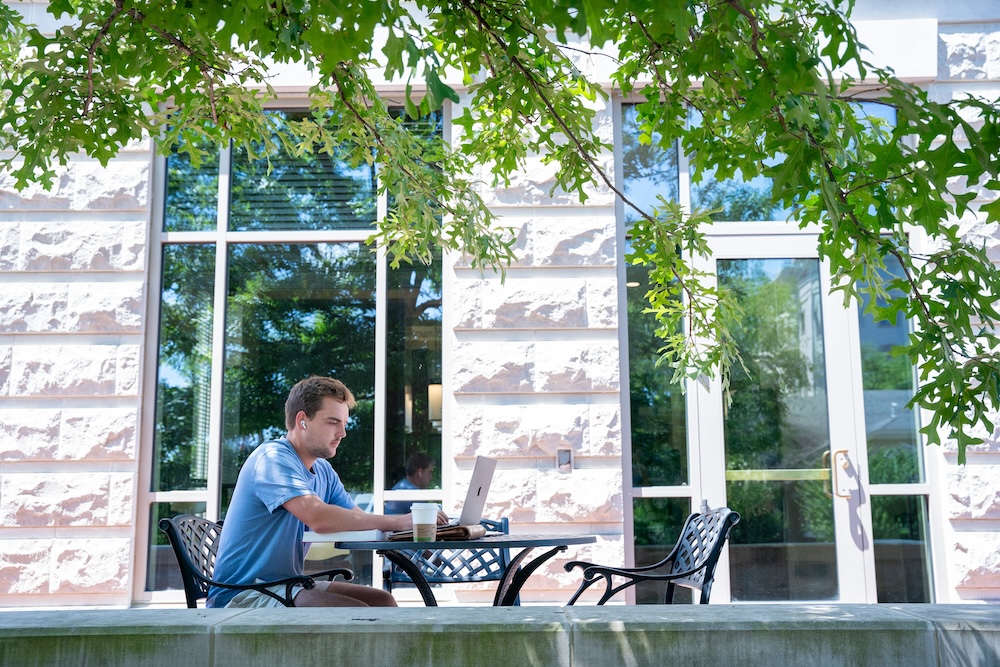You’re about to make the leap from high school to college. It’s an exciting milestone! You're going to dive into more advanced studies, get a taste of freedom and really start to figure out who you are and who you want to be. But let’s be real -- this big step doesn't come without its hurdles, especially when it comes to being prepared for college-level work.
Here at Belmont, we’re not just about helping you survive this transition – we want you to thrive. We’ve got your back with all the tools and resources you need to step confidently into your freshman year.
Keep reading for several ways to help you bridge the academic preparedness gap and crush it in college.
Study Habits in College: Building Your Success Toolkit

Find Your Learning Groove
Everyone’s brain works differently. Some of us are visual learners, others learn by listening and some need to get hands-on. The key is to figure out what works for you and roll with it. Experiment with different study techniques to find what clicks for you, which will really help you learn and remember what you’re studying.
One game-changer? Mastering the art of notetaking. It’s a proven fact: the physical act of writing things down helps you remember better than by just listening or reading. And get this – handwritten notes beat typing on a laptop every time.
Here are some note-taking hacks to level up your study game:
- The Cornell Method
- Mind mapping
- Outlining
Each of these can help you grab the important stuff and organize it in a way that makes sense to you. Remember the purpose of your notes, too. Will they help you study for a test? Provide ideas for a paper you will write? Develop points for another project? How much detail will you need later?
Play around with them and see which one fits your learning style best.
Time Management in College: Balancing Your Life
Prioritization and Planning
Let's face it – college isn't just about classes. You've got jobs, friends and a whole lot of life to juggle. That's where prioritizing comes in clutch. Grab a cool planner (or an app) and start mapping out your time. It'll make a world of difference in keeping track of all your assignments and deadlines.
Break down big tasks into smaller, less scary chunks. Set realistic goals, and make sure to block out time for studying and getting work done. And here's a pro tip: pencil everything into your calendar. That way, you won't accidentally double-book yourself or end up in a last-minute panic.
Remember to check your schedule regularly and be ready to switch things up if needed. Sometimes that might mean catching up on your favorite show after you finish an assignment, or rescheduling plans with a friend. But if you plan it right, you should be able to fit in both your academic and social life without feeling like you're constantly running on empty. And trust us, both are important!
The 80/20 Rule: Work Smarter, Not Harder
Ever heard of the Pareto Principle? It's also called the 80/20 Rule, and it's pretty mind-blowing. Basically, it says that 80% of your results come from 20% of your efforts. In other words, a small chunk of what you do has a huge impact.
So, when you wake up and look at your to-do list, focus on knocking out the 20% of tasks that'll give you 80% of your results for the day. It's all about tackling the stuff that makes the biggest difference first. Use this trick, and you'll be amazed at how much more you get done without burning out. It’s helpful to go into a college-level workload with a focused strategy.
Adjusting to College-Level Coursework: Leveling Up

Active Learning: Engage Your Brain!
College isn't about memorizing facts and spitting them out on a test. It's about thinking critically, solving problems and coming up with your own ideas. The best way to make this shift? Active learning.
Instead of zoning out while sitting in class, active learning means you should really get into the material. Question everything, look at things from multiple angles, try to apply what you’re learning to real-life situations.
Additionally, join in on class discussions, team up with your classmates and dive into things like case studies or simulations.
By getting active with your learning, you’re not just mastering your classes, you’re building skills that will set you up for success in college and beyond.
The Power of Study Groups
Study groups aren't just about hitting the books together. They're your academic squad – offering different perspectives, keeping you accountable and helping you stay motivated. Plus, they can make studying way less boring.
Don't be shy about speaking up in class and asking to form study groups with your classmates. Also, joining clubs or activities related to your major can be a great way to meet people and learn together outside of class.
Utilizing College Academic Resources: Your Campus Support System

College Wingman: Your Academic Advisor
Your academic advisor isn't just there to sign off on your classes. They're like your personal guide to crushing it in college. Schedule regular check-ins with them to stay on track with your goals.
Come prepared with questions about courses, majors, internships and career planning. These folks know their stuff and can give you solid advice on everything from tough classes to job interviews.
Building a good relationship with your advisor can also open doors to cool opportunities like research projects or study abroad programs. Plus, they might even write you a killer recommendation later down the line!
Tutoring Centers and Writing Workshops
Your campus is loaded with resources to help you level up your academic game. Check out what's available – tutoring centers, writing workshops and libraries with all kinds of research tools. These places offer subject-specific help and can be a lifesaver when you're stuck on a tough assignment or need to polish your writing skills.
A lot of campuses also offer workshops on stuff like study skills, time management and dealing with stress. It's all about developing your whole self – when you're taking care of your physical, mental, spiritual, financial and creative well-being, your grades will thank you too.
Don't wait until you're struggling to use these resources. Jump in early and often, and you'll be amazed at how much easier college life becomes.
Cross this Bridge at Belmont!

Starting college isn't just about hitting the books harder – it's a chance to really grow as a person. Here at Belmont, we're all about helping you nail this transition. Our GPS Office (Growth and Purpose for Students) offers personalized coaching and support programs to make sure you're not just ready for classes but set up for an awesome college experience and a bright future.
By embracing solid study habits, managing your time like a pro, tapping into campus resources and taking on the challenge of college coursework, you're setting yourself up for success. Belmont is here to give you all the knowledge, skills and support you need to absolutely crush this next chapter of your life. Let's do it!
Learn More
Find resources to help at Belmont.

